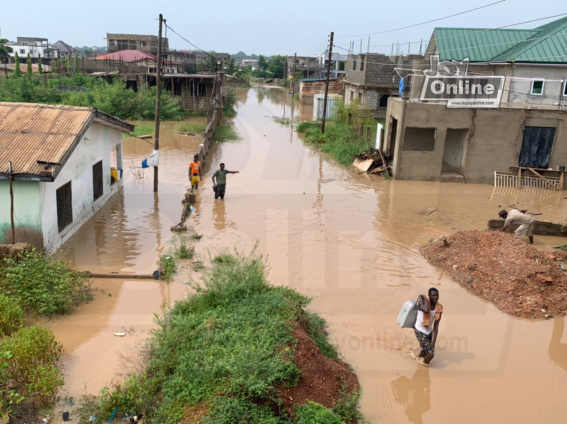The number of weather, climate and water-related disasters has increased by a factor of five over the past 50 years
Floods, droughts, heatwaves, extreme storms and wildfires are going from bad to worse, breaking records with ever alarming frequency, says UN Secretary-General, António Guterres.
He however observed there is nothing natural about the new scale of these disasters; "they are the price of humanity’s fossil fuel addiction."
The message comes on the back of the launch of the World Meteorological Organization's United in Science Report, which provides an overview of the most recent science related to climate change, its impacts and responses.
“The report is a shameful reminder that resilience-building is the neglected half of the climate equation," said Guterres. “It is a signal that developed countries have failed to take adaptation seriously, and shrugged off their commitments to help the developing world”.
Countries in all continents of the world are experiencing colossal floods, prolonged and severe droughts and excessive heatwaves, with daily losses of more than $200 million dollars.
“This year’s United in Science report shows climate impacts heading into uncharted territories of destruction. Yet each year we double-down on this fossil fuel addiction, even as the symptoms get rapidly worse,” said the UN Secretary-General.
At the recent Africa Climate Week, civil society actors noted that the Loss and Damage resulting from anthropogenic climate change unjustly afflicts African people.
They observed that “cyclones Idai, record flooding and extreme wildfires and climate-induced droughts in the Horn of Africa, southern Africa and the Sahel, in the wake of locust plagues attributed to climate change are unjust legacies for people in Africa that has adversely affected the human rights and fundamental freedoms of the African people”.
World leaders pledged in the Paris Agreement to limit global temperature rise to 1.5 degrees and build climate resilience. But the United in Science report shows that the targets are still way off track.
“Climate action is stalling on key fronts, and the poorest countries and people are being hardest hit,” said the UN Secretary-General. “But no country is immune. Our climate is heating rapidly”.
António Guterres wants the Glasgow decision to be delivered in full. The decision urges developed countries to collectively provide $40 billion dollars a year in new adaptation finance.
“But it is clearly not enough,” he acknowledged. “Adaptation finance needs are set to grow to at least $300 billion dollars a year by 2030; at the very least, 50 per cent of all climate finance must go to adaptation”.
All countries must boost their national climate ambition every year, until we are on track, he added.
Latest Stories
-
I want to focus more on my education – Chidimma Adetshina quits pageantry
3 hours -
Priest replaced after Sabrina Carpenter shoots music video in his church
4 hours -
Duct-taped banana artwork sells for $6.2m in NYC
4 hours -
Arrest warrants issued for Netanyahu, Gallant and Hamas commander over alleged war crimes
4 hours -
Actors Jonathan Majors and Meagan Good are engaged
4 hours -
Expired rice saga: A ‘best before date’ can be extended – Food and Agriculture Engineer
4 hours -
Why I rejected Range Rover gift from a man – Tiwa Savage
4 hours -
KNUST Engineering College honours Telecel Ghana CEO at Alumni Excellence Awards
5 hours -
Postecoglou backs Bentancur appeal after ‘mistake’
5 hours -
#Manifesto debate: NDC to enact and pass National Climate Law – Prof Klutse
5 hours -
‘Everything a manager could wish for’ – Guardiola signs new deal
5 hours -
TEWU suspends strike after NLC directive, urges swift resolution of grievances
5 hours -
Netflix debuts Grain Media’s explosive film
6 hours -
‘Expired’ rice scandal: FDA is complicit; top officials must be fired – Ablakwa
6 hours -
#TheManifestoDebate: We’ll provide potable water, expand water distribution network – NDC
7 hours

